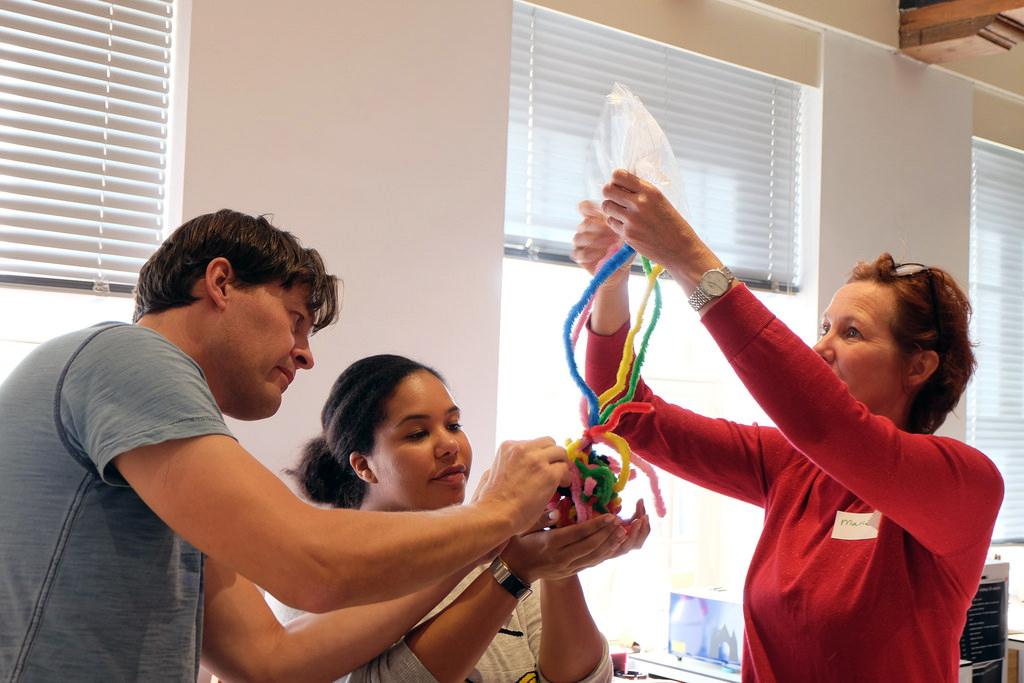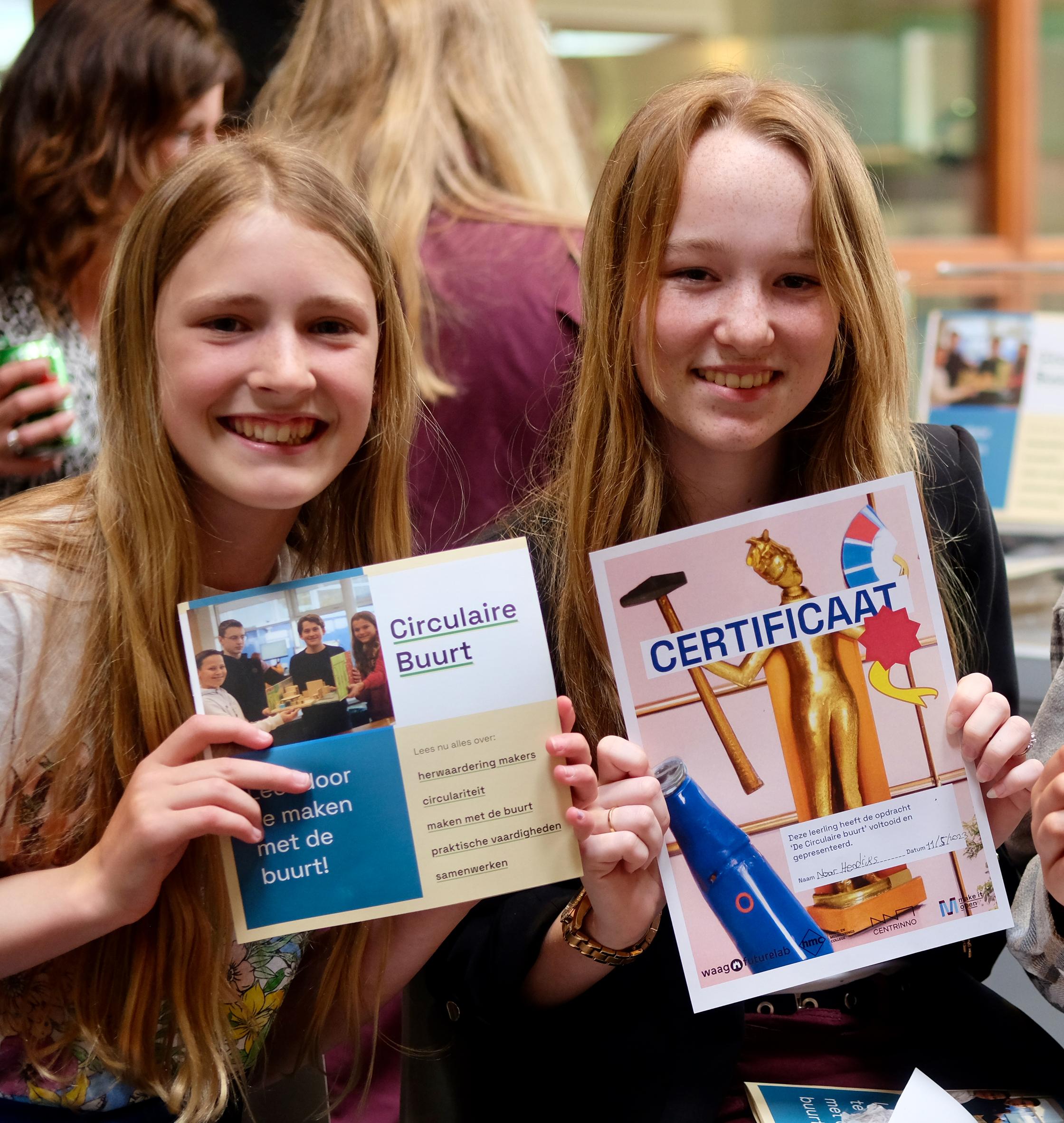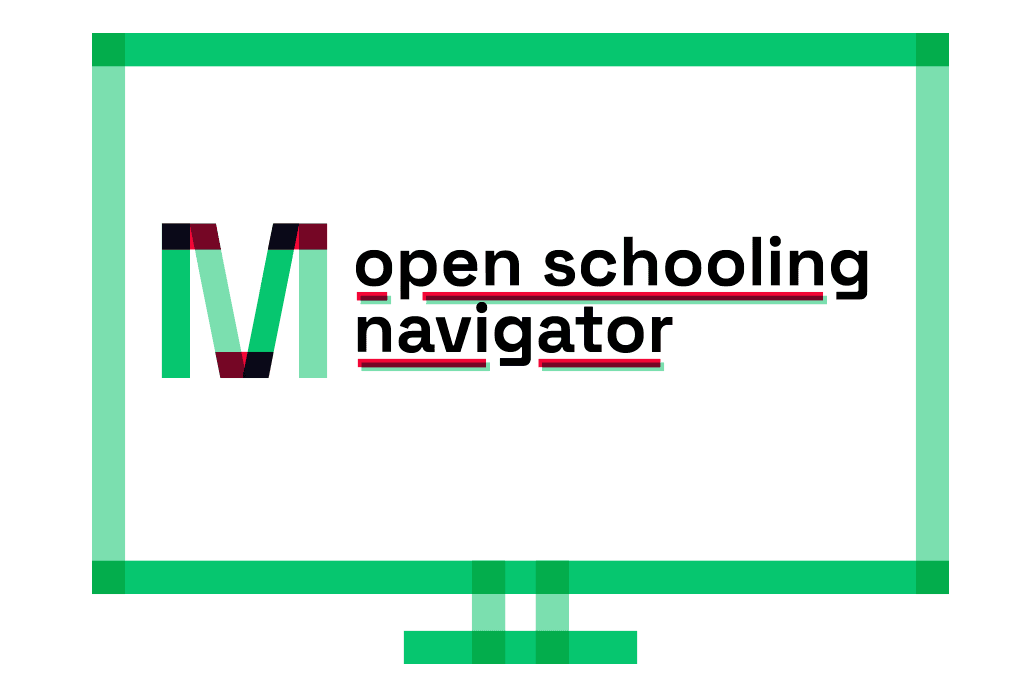Waag is part of the European project Make it Open. We guide teachers in making learning more personal and useful. This equips students with the knowledge and skills they need to meet the challenges of the future. The Make it Open project builds on the idea of low floors, high ceilings - a term from educational practice, meaning something that is easy to learn, but powerful and comprehensive.
In 2017, Mitchel Resnick argued in his book Lifelong Kindergarten: Cultivating Creativity through Projects, Passion, Peers, and Play the case to expand this term to include wide walls, meaning that learning should not just be about going from easy to complex, it should instead also include horizontal growth for young learners where multiple learning pathways can be explored as they travel from the floor to the ceiling. This idea has been gaining popularity as a means to prepare young learners for the rapidly changing world that is being felt throughout the entire culture. And these changes bring challenges. For example, COVID-19 has accelerated the digitisation of education providing new means of access to education for many but simultaneously pushed the world into becoming more immediate and more dispersed.
Society at large has to solve these emerging challenges but these challenges are particularly more acute for schools due to their large contribution in equipping students with the knowledge and skills they will need for this ever changing tomorrow. There is a need for a more open and flexible pedagogical approach in education to support the diverse needs of 21st century learners. In essence, schools should strive for these “wide walls”, and look outwards, building their walls throughout the community. But how do we encourage such change? The new European project Make it Open, which we are a part of, wants to show you how this can be possible for you in your school through their approach to “open schooling”.
And we don’t just want to show you, we also want to invite you to be a part of it.
What is Open Schooling?
Open schooling is a broad term which describes learning which is ‘open’ in terms of timing, location, teaching roles, methods, and any other factors related to the learning process. In other words, it is where the school becomes an agent of community well being, where families, companies, and organisations become real partners in school life and the learning journey of the students. Many schools already carry out such an approach but at Make it Open we are trying to evolve this idea of open learning, widening its appeal amongst schools by making it more accessible. It’s a programme where learners are empowered to create their own culturally tailored learning experiences and teachers are given new ways to connect students to a range of different topics from food waste, pollution to healthy snack eating.
Throughout this process, we have worked with teachers across Europe to understand their needs, and to design a supportive framework for teachers to trial open learning within their school. What is special here is that this framework has been built by you, teachers, for other teachers, to complement the curriculum, not replace it. The framework has just finished being tested in eight schools and some teachers have already shared their experience in adopting it. Montessori school De Regenboog in Amsterdam is participating as a partner in Make it Open. View the personal experiences of Suzanne and Joke below.
Want to be involved in open schooling?
Our next step is to test the Make it Open framework further during the 2022-2023 school year across 10 countries in 150 schools: Greece, Hungary, Israel, The Netherlands, Poland, Portugal, Romania, Spain, Sweden, and the UK. If you want to be a part of this open schooling movement, leave us your contact details and our local leaders will contact you once we kick off this next phase. Or you can also simply pass on this article to your head of year/principal to show your interest in open schooling and all that it could bring to you, your school, and most importantly, your learners.
If you want to know more about the project, you can visit the Make it Open website or get in contact with Ecsite – The European Network of Science Centres and Museums: Andrew Whittington-Davis (email: ajwhittingtond[at]ecsite.eu).


